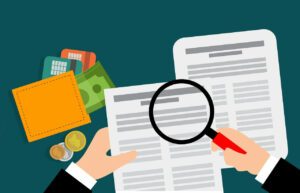- Payday Loans stay on your credit report for up to 6 years.
- However, paying-off your payday loan and settling the debt in full and on-time will remove it faster.
- Paying off your payday loan, installment loan or bad credit loan on-time and in full can not only help your debt-to-income ratio, but also will show lenders that you borrow responsibly which makes you a favorable candidate for future loan products.
How Long Will a Payday Loan Stay on my Credit Report?
Typically speaking, payday loans stay on your credit report for six years and if left unpaid, can stay for longer.
Whilst it is certainly possible to get a payday loan with poor credit, if you have unpaid loans on your report, this could deter lenders from working with you in the future. This is because if you have unpaid loans on your credit report, you are seen as a less reliable candidate with lower chances of paying back your loan. This can mean that some stricter lenders won’t work with you, or potentially charge you higher rates on your loans.
Defaulted payday loans will remain on your credit report for six years. This will also push down your credit score and make it less likely that you will get approved for a loan for several years.
What if I Cannot Repay my Payday Loan?
If you know that it is likely that you will be unable to make your payday loan repayments on-time, the first thing that you should do is contact your lender to inform them. If your lender sees that you are actively working to repay your loan, they may look upon your situation favorably and give you more time to repay with improved terms to suit you better.
However, if you have not contacted your lender, you will usually first receive emails, letters or phone calls. As you will have given the lender personal contact information, they have a right to search for you using that information. They may try to contact your friends and family, and, in some rare cases, even try and call your place of work.
What is a Payday Loan Debt Trap?
Statistics show that one in five borrowers default on their payday loans, which is why it is so important that you have a repayment plan in mind before applying.
Having said that, some people fall into what is known as a payday loan debt trap. This is when you cannot afford to make your repayments and this can trigger additional fees. The high costs lead many borrowers into rollovers, or new loans, which trap them in a cycle of debt known as the payday loan debt trap. Repayment for these types of loans is very difficult.
Can I Stop Automatic Payments on a Payday Loan?
Payday lenders will often use automatic payments as a form of securement for their unsecured loans.
Under federal law, borrowers have the authority to stop automatic payments at anytime. However, to legally stop the payments, you must follow these steps:
Notify your payday lender that permission to take automatic payments is being revoked.
This can be done with a written letter or sometimes an email. It is also a good idea to call your lender in advance to let them know.
Notify your bank.
While the payday lender no longer has permission to withdraw from a bank account once authorization has been revoked, it’s best to inform the bank that the lender no longer has the authorization to debit a checking account for the loan payments.
Issue a stop-payment order.
Contact your bank to issue a stop-payment order for the next loan payment, especially if authorization was revoked close to the next withdrawal date.
